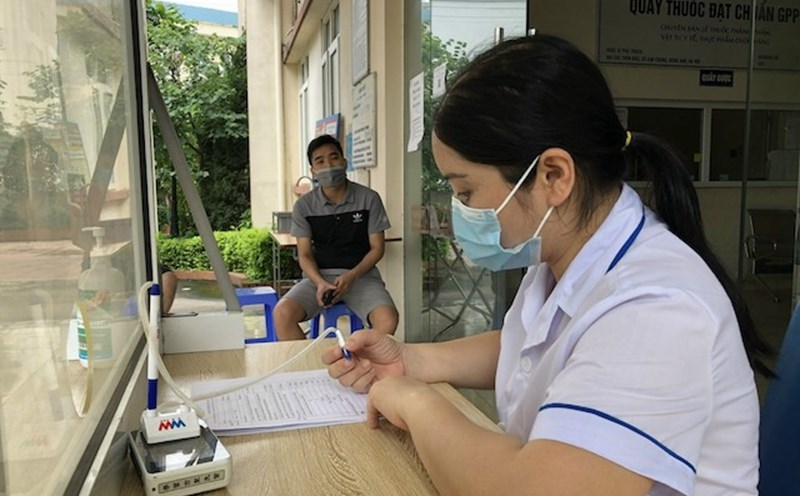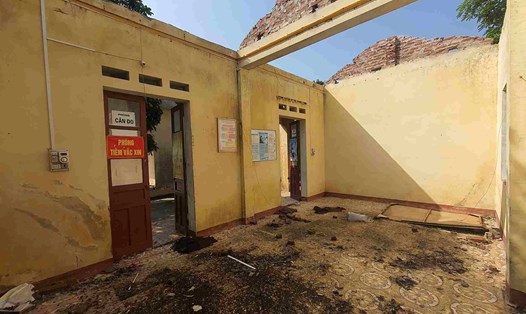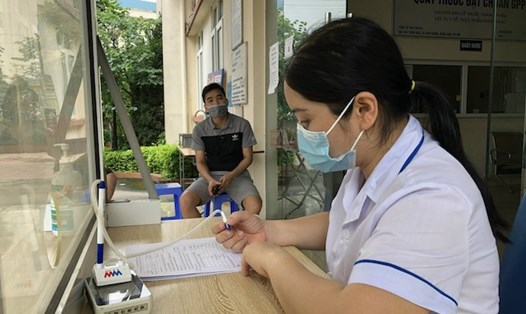3 days only 1 patient
Morning and afternoon, early in the week and late at night, the My Tan Commune Health Station (Cao Lanh City, Dong Thap Province) is always empty of patients. There are almost only doctors and medical staff on duty, working under the National Target Program.
Dr. Le Van Dat - Head of My Tan Commune Health Station - said that on busy days, the health station can receive 3-4 people, mainly for examination of diabetes, blood pressure, colds, etc. In 2023, My Tan Commune Health Station could only receive 78 patients. By 2024, the situation had improved but still only received 110 patients, an average of 1 patient coming every 3 days.
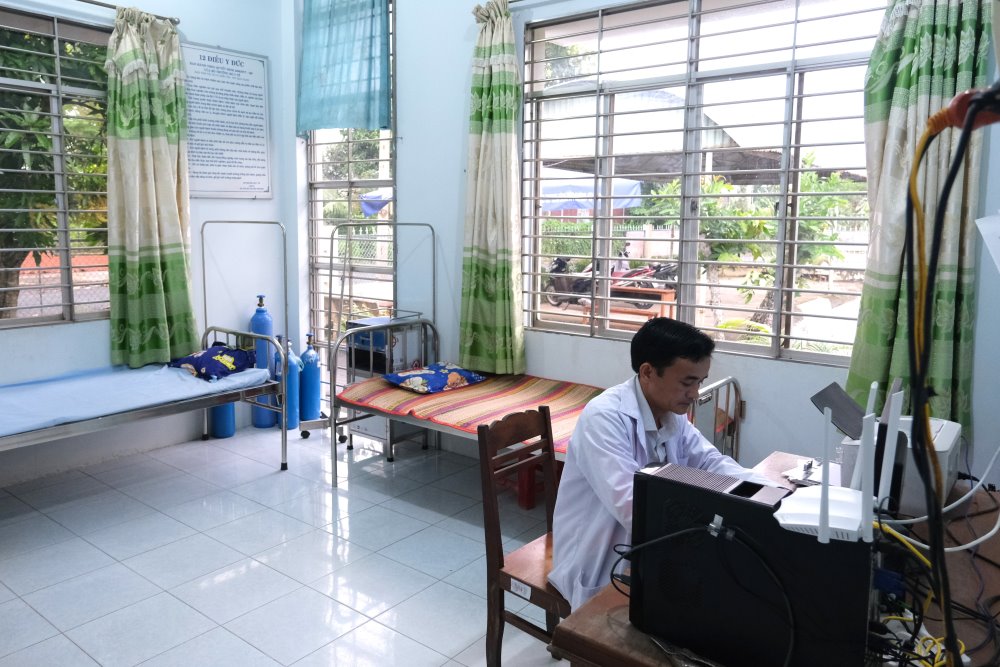
The "captain" of this commune health station explained that the number of patients registering for initial medical examination and treatment at the station was very low, less than 10% of the local population.
Dr. Dat said that the main reason is because the hospital is located near many large medical facilities with modern equipment such as Dong Thap General Hospital, Dong Thap Military and Civilian Hospital, Tam Tri Dong Thap Hospital, etc. Therefore, patients "like" to go to specialists at higher levels and once registered, they no longer need to return to lower levels.
"It must also be said that for 2 years, the head of the station often went to study, not directly participating in medical examination and treatment at the station, leading to not attracting patients" - Dr. Dat admitted.
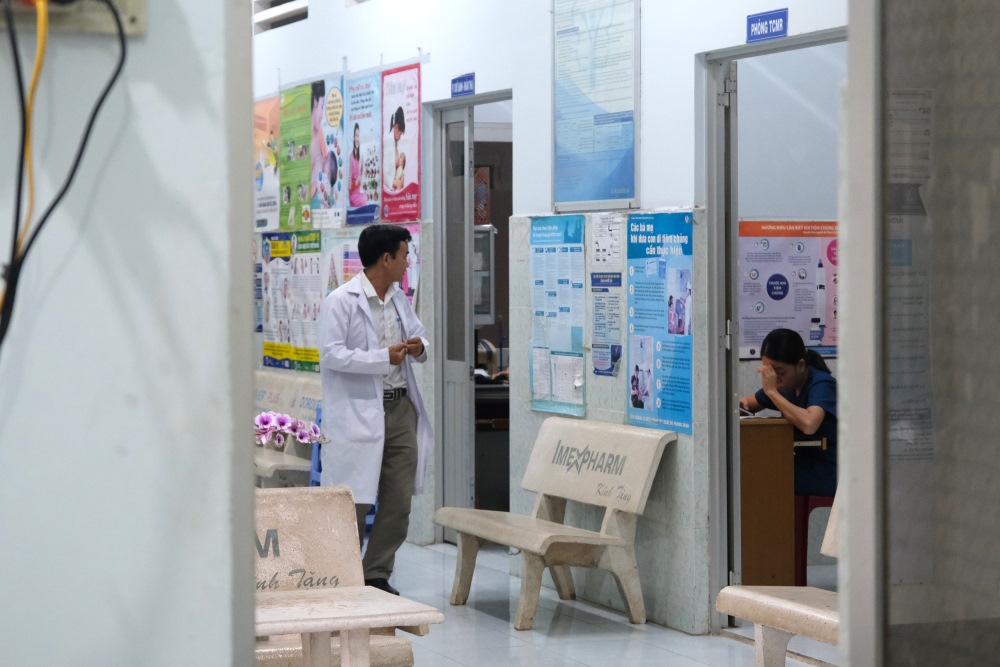
Multiple cover devices
The head of My Tan commune health station led us to visit the rooms that had not been visited by people for nearly 7-8 years. The delivery, postpartum, and traditional medicine rooms, although quite clean, spacious, and fully equipped with tools and medicine, exuded a cold atmosphere.
“Since I came to the station, there has not been a single case, but the station still has to ensure facilities, periodically check medicines, prepare for cases of childbirth or stillbirth, and have staff continuously trained to prepare well for the work,” said Dr. Dat.
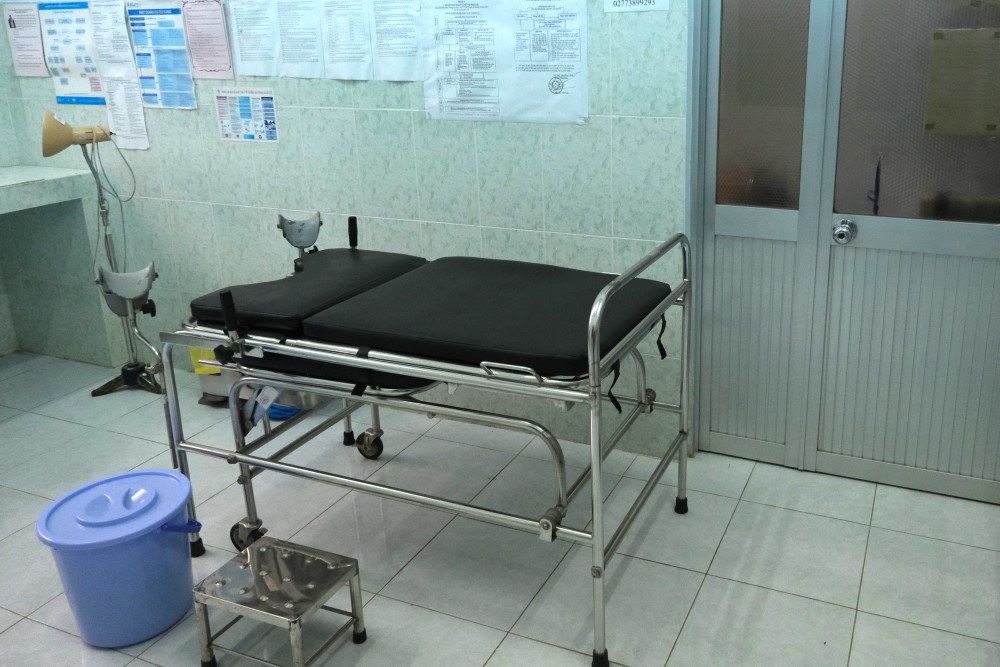
Currently, My Tan Commune Health Station has 9 staff members, including: doctors, nurses, pharmacists, nurses, and population officers. According to Dr. Dat, this number of staff is still lacking compared to the standard. However, due to the lack of patients, the staff also have extra time.
Ms. Nguyen Thi Anh Tuyet - Medical Doctor of My Tan Commune Health Station - expressed regret: "There are few patients so I don't dare to recommend many medicines, mainly just a few common ones, such as blood pressure, stomach...".
Doctor Tuyet expressed concern about the possibility that the lack of patients will cause a shortage of jobs, and in the short term, this will greatly affect the income of the medical staff. Although she has worked for 7 years, Doctor Tuyet's total income is only over 6 million VND/month.
Like other health stations in Dong Thap province, in 2024, My Tan commune health station was allocated 60 million VND, of which 17 million VND was spent on centralized purchases, the rest must be completed within 12 months. "Because this year, electricity, water, camera installation, etc. are all necessary items, so this Tet, we will probably only have our salaries," said Dr. Dat.
Not only My Tan Commune Health Center
Director of Cao Lanh City Medical Center Truong Quoc Dung informed that currently, in Cao Lanh City (Dong Thap Province), there are 15 commune and ward health stations. The number of patients coming to health stations in the suburbs such as Tinh Thoi Commune, Ward 6, Tan Thuan Dong Commune, etc. is quite large. Particularly, some inner-city health stations such as Ward 1, My Tan Commune, My Phu Ward, etc. have only 1 patient coming to see a doctor each day.
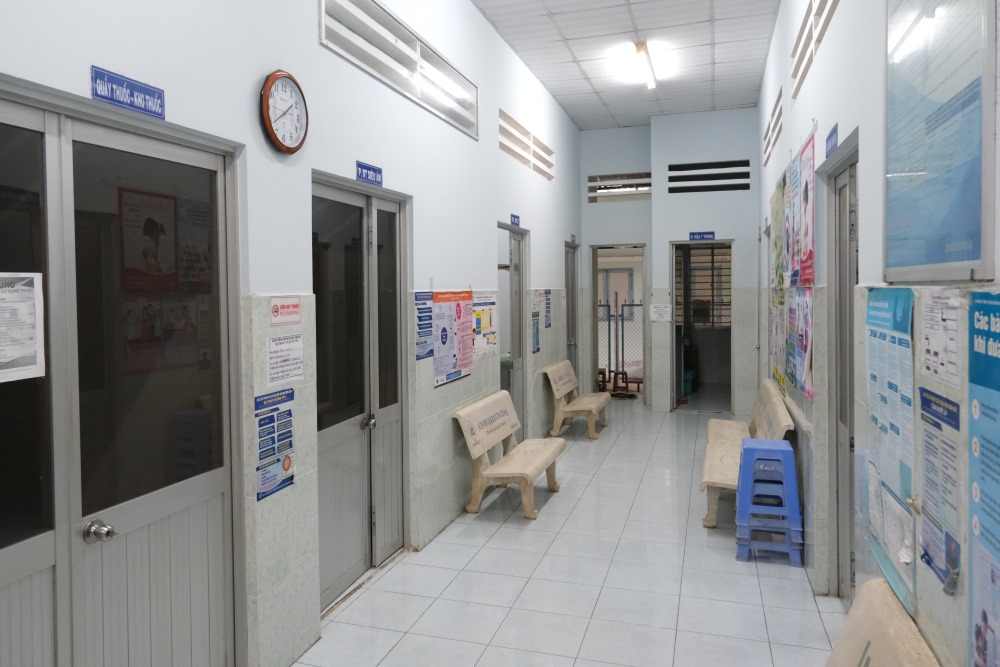
"The situation of grassroots health care facilities in Dong Thap province having patients while the inner city has no patients is common and has been going on for many years now," said Mr. Doan Tan Buu, Director of the Department of Health of Dong Thap province.
According to Mr. Buu, the prolonged COVID-19 pandemic is one of the reasons why the grassroots medical force is under a lot of pressure, while people have higher demands for health care.
“Health care workers are depleted, worried about making a living, especially in hamlet health care, and lack capacity building programs to support updating and improving expertise… This leads to people no longer being interested in health care facilities,” Mr. Buu added.
According to many health experts, this is very worrying, because it is completely opposite to the not-so-distant past. Dr. Doan Van Hong - former Director of the Department of Health of Dong Thap province - recalls: "In the early 90s, the health station was often overloaded. The health sector had to organize medical boats to go to the people's places to examine and treat them, reducing the pressure on the health station."
According to Dr. Hong, the health center is the closest medical facility to the people, but currently, the rate of initial medical examination and treatment is very low, posing a problem that needs to be solved soon for the entire industry.


